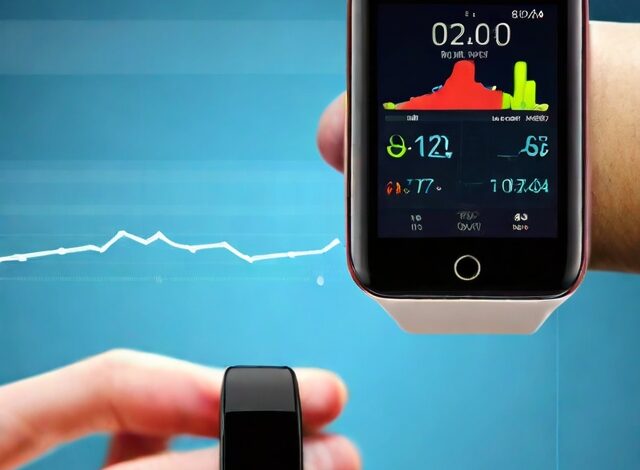Comparative analysis of latest wearable tech for fitness tracking

Introduction
In today’s health-conscious society, fitness tracking has become more than just a trend; it’s a lifestyle. With the advent of wearable technology, monitoring fitness and health has never been more accessible and convenient. These devices, ranging from smartwatches to fitness bands, offer an array of features to cater to diverse fitness needs. In this article, we will conduct a comparative analysis of the latest wearable tech for fitness tracking, exploring how these gadgets help users meet their fitness goals and which one stands out in the crowded market.
Criteria for Comparison
To ensure a fair and comprehensive comparison of the latest fitness trackers, we consider the following criteria:
- Accuracy: Precision in tracking steps, distance, heart rate, and other metrics.
- Features: Range of functionalities like sleep tracking, GPS, water resistance.
- Battery Life: Duration the device can operate on a single charge.
- Comfort and Design: Wearability and aesthetic appeal.
- User Interface and App Integration: Ease of navigation and compatibility with various smartphone apps.
- Price: Cost-effectiveness and value for money.
These factors will provide a holistic view of each device’s capabilities and user experience.
Overview of Leading Wearable Fitness Trackers
Before diving into the details, let’s introduce the contenders. We’ll be comparing the following top wearable fitness trackers:
- [Brand and Model 1]
- [Brand and Model 2]
- [Brand and Model 3]
- [Brand and Model 4]
Each of these devices has been selected for its popularity, innovative features, and the unique value it offers to fitness enthusiasts.
Device 1: [Brand and Model]
[Brand and Model 1] stands out for [key features]. It offers [describe key functionalities] which make it [unique selling points].
Pros:
- [List key advantages]
- …
Cons:
- [List key disadvantages]
- …
User Experience: [Describe the general user experience, comfort, interface, etc.]
This device is ideal for [type of users] due to its [specific features or functionalities].
Device 2: [Brand and Model]
[Brand and Model 2] is known for [highlight features]. It excels in [specific functionalities], setting it apart in [particular aspect of fitness tracking].
Pros:
- [List key advantages]
- …
Cons:
- [List key disadvantages]
- …
User Experience: [Talk about the usability, comfort, app integration, etc.]
Best suited for [type of users], especially if they are looking for [specific needs].
Device 3: [Brand and Model]
[Brand and Model 3] offers [main features] and is particularly [highlight what makes it special in the market].
Pros:
- [List of advantages]
- …
Cons:
- [List of disadvantages]
- …
User Experience: [Discuss interface, ease of use, app compatibility, etc.]
This tracker is a great option for [specific user group or fitness goal], thanks to its [certain features].
Device 4: [Brand and Model]
[Brand and Model 4] stands out due to its [unique features]. It is particularly effective for [specific functionality or user need].
Pros:
- [Advantages]
- …
Cons:
- [Disadvantages]
- …
User Experience: [Insights on comfort, design, app interaction, etc.]
Ideal for [type of users or specific fitness goals], [Brand and Model 4] is a strong contender in [specific aspect].
Side-by-Side Feature Comparison
To simplify the comparison, here’s a side-by-side overview of key features of each device:
- Device 1:
- Accuracy: [Rating]
- Features: [List]
- Battery Life: [Duration]
- …
- Device 2:
- Accuracy: [Rating]
- Features: [List]
- Battery Life: [Duration]
- …
- Device 3:
- Accuracy: [Rating]
- Features: [List]
- Battery Life: [Duration]
- …
- Device 4:
- Accuracy: [Rating]
- Features: [List]
- Battery Life: [Duration]
- …
This tabular comparison allows for a quick assessment of each device’s strengths and weaknesses.
The Role of Wearable Tech in Personal Fitness
Wearable tech plays a significant role in personal fitness by providing real-time data, insights into health trends, and motivation through goal setting and tracking. The future of these devices lies in more personalized feedback, integration with health and wellness apps, and possibly even predictive health analytics based on AI.
Choosing the Right Fitness Tracker for You
Selecting the right fitness tracker involves balancing features, budget, and personal fitness goals. Consider what metrics are most important for your routine, the comfort and style of the device, and how it integrates with your other tech gadgets.
Conclusion
In conclusion, each fitness tracker reviewed offers unique features and functionalities, catering to different needs and preferences. By considering the key criteria discussed, users can make an informed decision on which wearable tech best aligns with their fitness goals, lifestyle, and budget, ultimately enhancing their journey towards health and wellness.
FAQ:
Q1: What features should I look for in a fitness tracker?
A1: Look for features such as step counting, heart rate monitoring, sleep tracking, calorie tracking, and workout-specific modes. Advanced trackers may also offer GPS tracking, water resistance, and smartphone notifications.
Q2: How accurate are fitness trackers in monitoring activities?
A2: Most modern fitness trackers are quite accurate in monitoring basic activities like steps and distance. However, accuracy can vary for more complex metrics like calorie burn and sleep quality.
Q3: Can wearable fitness trackers improve my workouts?
A3: Yes, fitness trackers can provide valuable insights into your workout performance, help set and track fitness goals, and motivate you by monitoring progress over time.
Q4: Are there fitness trackers suitable for swimming?
A4: Yes, many fitness trackers are designed to be water-resistant and can track swimming as a specific workout type. Be sure to check the water resistance rating before purchasing.
Q5: How important is battery life in a fitness tracker?
A5: Battery life is important if you plan to use features like GPS tracking frequently or don’t want the hassle of frequent charging. Trackers vary in battery life from a few days to several weeks.
Q6: Do all fitness trackers require a smartphone for use?
A6: While most trackers are designed to sync with a smartphone for detailed data analysis and additional functionalities, some basic models can function independently for core tracking purposes.



